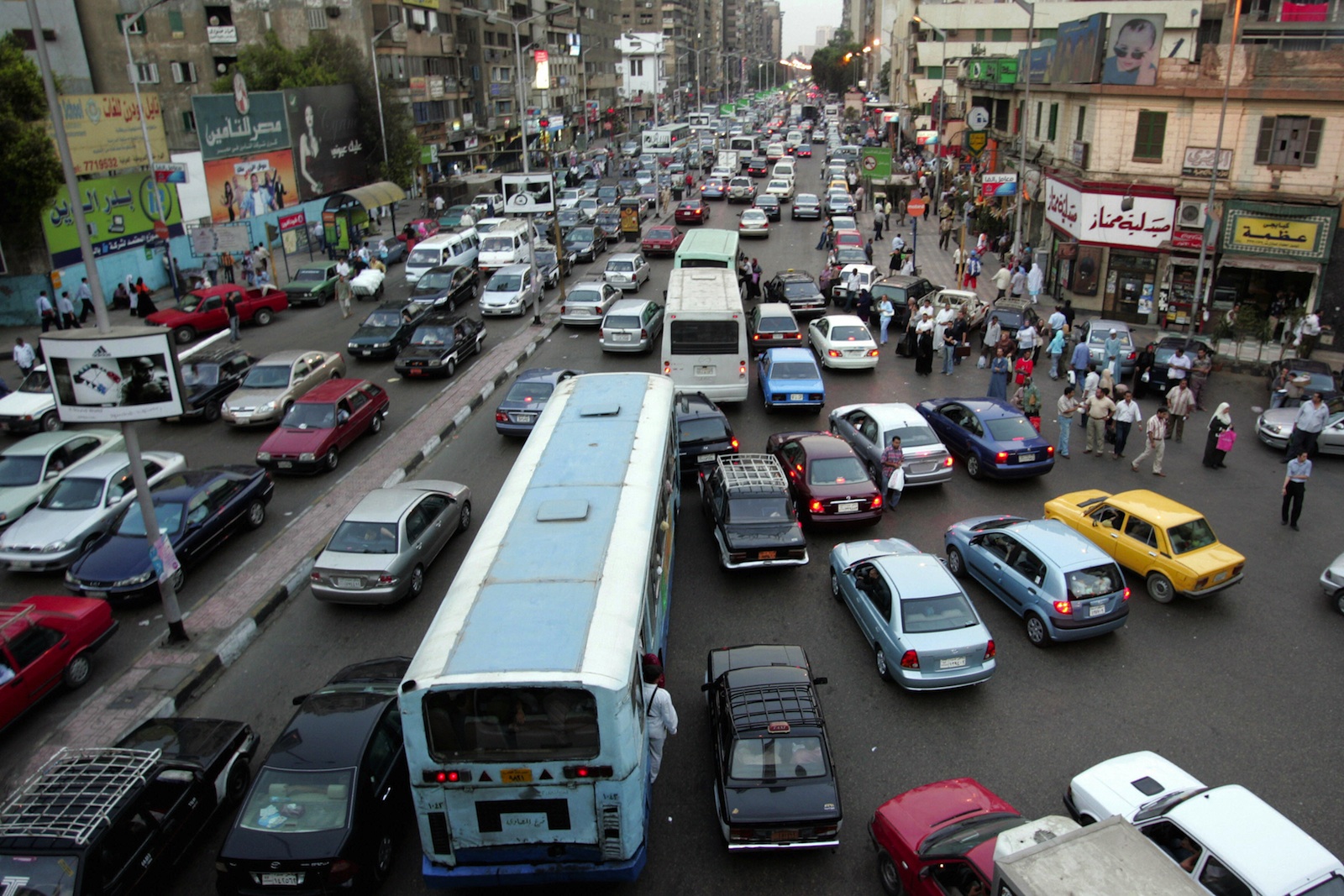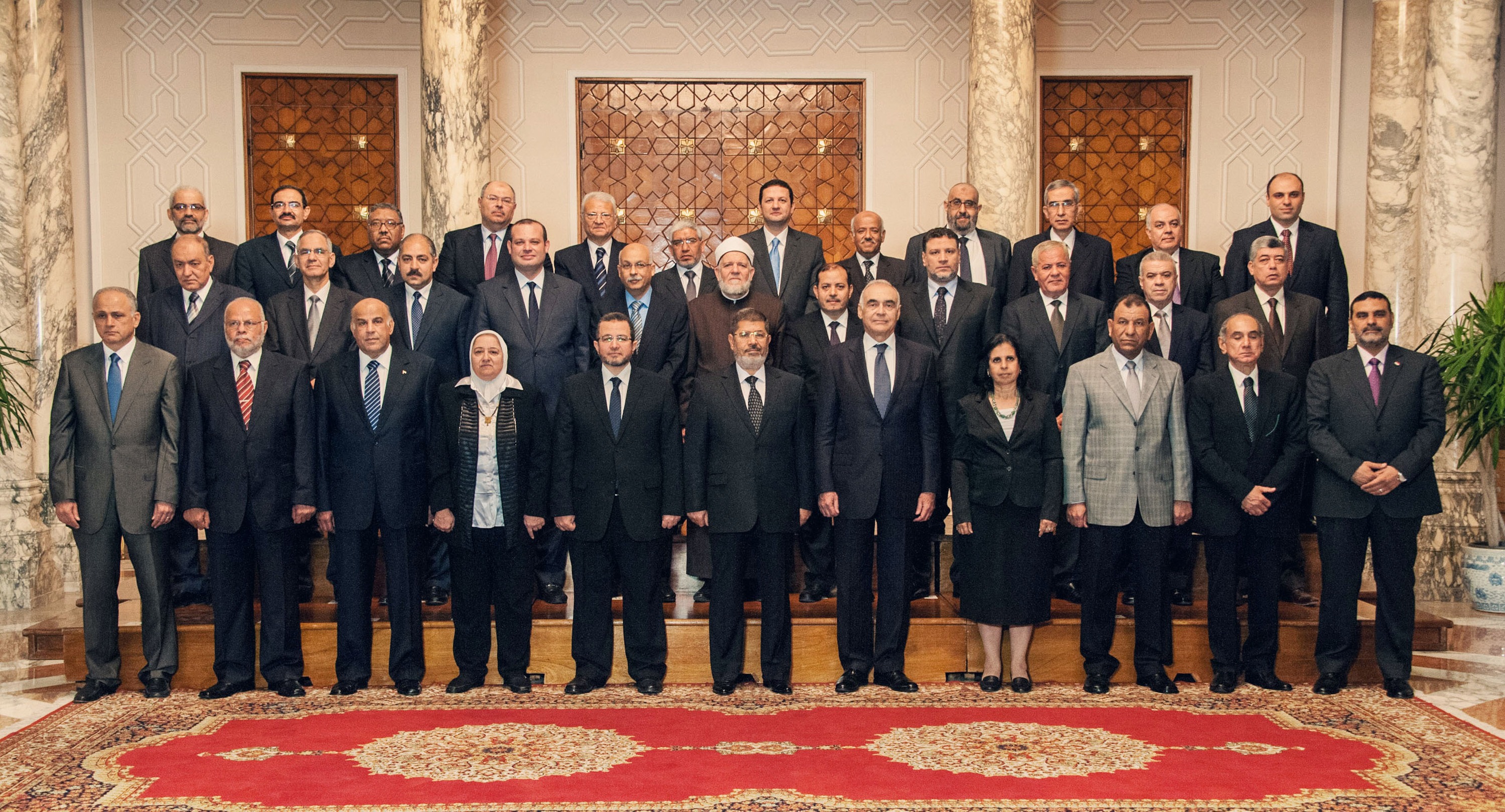
By Mohammed Nosseir
An annex to the Suez Canal is rapidly being built, thousands of new roads are under construction, bridges are being erected to overcome traffic bottlenecks, hundreds of schools are in the pipeline – these are just a few examples of exploits the Egyptian government has announced over the past few months. Other projects, with less publicity coverage, are undoubtedly underway as well. However, such projects (which economists claim can boost the GDP of any given country) are not, in my opinion, the most crucial challenges we face today. Before embarking on any further infrastructure expansion, Egypt first needs to upgrade its operating mentality.
Egyptians are essentially impressed by numbers (the more and the larger, the better). Our executives take pride in themselves, as they watch the development of a building or a road, yet they are not concerned with the functionability of these projects, or the quality of the services that they offer. They seem to confuse expansion with development; we can expand our infrastructure substantially (a matter of available resources) – and still continue to be a developing country. What the government has not considered so far is that expansion on its own will not bring additional business. That requires innovative thinking and new policies.
Consecutive Egyptian governments (and a large section of the private sector) have failed to upgrade their operating systems or, in other words, their mindsets. This is because most of the decision-makers responsible for the development and management of projects such as the ones mentioned above (and thousands of others) are old fashion bureaucrats, operating along the same lines, policies and performances that were used in the nineteen fifties. Egypt may have a new cabinet, but its seven million Egyptian bureaucrats have not altered their behaviour or changed their day-to-day practices. In addition, most of the ministers in the current cabinet have emerged from the Egyptian bureaucracy.
During the ceremonial opening of any national project, directors give accounts of the incremental increases in capacity provided by the new projects – which basically means that they will serve a larger number of citizens. For instance, when inaugurating a new hospital, they point to the up-to-date medical equipment installed or the increase in patient-bed ratio – but they never speak of the primary purpose of the hospital; providing better quality, faster treatment.
I have been closely watching a number of infrastructure expansion projects that are underway in the area of Heliopolis, where the presidential palace is located; an old bridge has doubled its lanes and the old metro has been removed to provide more room for road expansion. In reality, however, the government has only managed to move the current traffic bottlenecks to a new location, less than 1km away. Since the Egyptian government will certainly never have the resources to expand all Egyptian roads and bridges, our traffic congestion problems will continue to exist, but in different locations.
Cairo International Airport’s new terminal was a key source of pride for Mubarak’s regime, and the runner-up in the 2012 presidential election used to speak proudly of this project, as his major achievement. While the terminal may be relatively modern, it has been badly managed ever since its inauguration; long passport control queues, extensive disorder in the baggage claim area with suitcases often arriving late, and taxi drivers and various agency representatives managing to cross into the immigration zone in the hope of picking up passengers before the competition.
The same approach is applied to the construction of new schools and universities that continue to use a poor curriculum taught by under qualified teachers. State-of-the-art technology is used to shoot many movies, yet the substance is mediocre. The new ambulances that have been running on Egyptian roads still take much too long before they finally reach their patients. Traffic officers are keen on checking the validity of car licenses, but they never penalise drivers for illegal or incorrect driving practices, which are the primary cause of death, while driving with an expired license does not harm anyone. However, exacting a penalty for the offense helps the government to increase its revenues.
Consecutive Egyptian governments have continued to use the same age-old excuses; since our population is increasing much faster than the country’s resources, Egypt must be a quantity-driven rather than a quality-driven nation to succeed in reducing the gap between the government’s capacity and citizens’ demands. The government does not have the means to do both (increase quantity and improve quality). Moreover, since numbers are facts and service is a relative factor, our governments prefer to focus on the numbers and to continue to debate the services. Eventually, a few weeks after the launching of any project, the new equipment that the government was so proud of invariably begins to deteriorate, wiping out its only claim to success.
Furthermore, Egyptians, in general, are not entrepreneurial by nature, preferring a secure job with less income to a risky job with a higher income. The vast majority of government employees are preoccupied, mentally and physically, with trying to enhance their private earnings so as to cope with their financial commitments. In addition, they are likely to be penalised if they think out of the box and extra performance will certainly not lead to promotions or provide additional incentives. As a result, government employees think of ensuring their financial security in terms of providing only the most basic government requirements, using any additional capacity they may have in private business ventures.
Besides, almost all of these government projects are missing a genuine touch of beauty, something that would distinguish us from the rest of the world and make the projects visually attractive. Apparently, this artistic factor has never been of concern or interest to any government organisation. The government tries its best to narrow its capacity gap; beauty has no place in its plans.
The government’s building of the tallest steel tower flag post in Egypt symbolises the above-mentioned developments, and many others. I see no valid reason for spending millions of pounds on a flag post, when our flag could be easily raised, at no cost, on millions of Egyptian buildings. Moreover, from an artistic perspective, the tower is quite ugly. Furthermore, the entire purpose behind this investment was lost when a very small flag was raised on the tall tower; it can barely be seen and has never flown.
Can Egypt challenge itself by improving all aspects (mental, physical and artistic) of its performance? Indeed, it can – but it is vital that the government adopt an innovative system of thinking prior to the implementation of any project. We need to think of a project as an entire process, as a whole, rather than to consider each of its parts separately. For example, road and traffic problem challenges must be faced by creative ideas and a new team that will provide a global solution to all related issues.
We cannot move forward if we continue to rely on the same bureaucrats. However, engaging the entire society in thinking about our challenges and enabling it to contribute thoughts and ideas to any given project prior to its implementation will save the country billions of pounds. We do not lack qualified citizens capable of making positive contributions. The government simply does not want to engage their assistance.
Mohammed Nosseir is an Egyptian Liberal Politician working on reforming Egypt on true liberal values, proper application of democracy and free market economy. Mohammed was member of the Higher Committee and headed the international relations of the Democratic Front Party from 2008 to 2012




